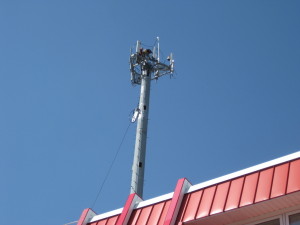
The past legislative session was an extremely busy one for both homeowner and condominium associations. Initial legislative proposals ranged from an entire rewrite of Chapter 720 to a depository scheme to collect assessments that would have been a disaster. In the end, at least for this past legislative session, Florida’s community associations avoided disaster. Most, but not all, of the recently passed Florida legislation affecting Florida’s community association’s are reasonable. The hardest hit group in this year’s legislative session is by far homeowner developers. The full text of each passed bill can be found at: www.flsenate.gov; www.myfloridahouse.com; and www.leg.state.fl.us.
Homeowner Associations
Officers and Directors
F.S. § 720.3033 Officers and Directors.- This past legislative session there many changes to the laws governing homeowner association officers and directors. Both Homeowner association Boards of Directors and their property managers should immediately update themselves on these new legislative changes to avoid unknowingly running afoul of the law. The underlined portion below is the amended text of F.S. § 720.3033:
720.3033 Officers and directors.—
(1)(a) Within 90 days after being elected or appointed to the board, each director shall certify in writing to the secretary of the association that he or she has read the association’s declaration of covenants, articles of incorporation, bylaws, and current written rules and policies; that he or she will work to uphold such documents and policies to the best of his or her ability; and that he or she will faithfully discharge his or her fiduciary responsibility to the association’s members. Within 90 days after being elected or appointed to the board, in lieu of such written certification, the newly elected or appointed director may submit a certificate of having satisfactorily completed the educational curriculum administered by a division-approved education provider within 1 year before or 90 days after the date of election or appointment.
(b) The written certification or educational certificate is valid for the uninterrupted tenure of the director on the board. A director who does not timely file the written certification or educational certificate shall be suspended from the board until he or she complies with the requirement. The board may temporarily fill the vacancy during the period of suspension.
(c) The association shall retain each director’s written certification or educational certificate for inspection by the members for 5 years after the director’s election. However, the failure to have the written certification or educational certificate on file does not affect the validity of any board action.
(2) If the association enters into a contract or other transaction with any of its directors or a corporation, firm, association that is not an affiliated homeowners’ association, or other entity in which an association director is also a director or officer or is financially interested, the board must:
(a) Comply with the requirements of s. 617.0832.
(b) Enter the disclosures required by s. 617.0832 into the written minutes of the meeting.
(c) Approve the contract or other transaction by an affirmative vote of two-thirds of the directors present.
(d) At the next regular or special meeting of the members, disclose the existence of the contract or other transaction to the members. Upon motion of any member, the contract or transaction shall be brought up for a vote and may be canceled by a majority vote of the members present. If the members cancel the contract, the association is only liable for the reasonable value of goods and services provided up to the time of cancellation and is not liable for any termination fee, liquidated damages, or other penalty for such cancellation.
(3) An officer, director, or manager may not solicit, offer to accept, or accept any good or service of value for which consideration has not been provided for his or her benefit or for the benefit of a member of his or her immediate family from any person providing or proposing to provide goods or services to the association. If the board finds that an officer or director has violated this subsection, the board shall immediately remove the officer or director from office. The vacancy shall be filled according to law until the end of the director’s term of office. However, an officer, director, or manager may accept food to be consumed at a business meeting with a value of less than $25 per individual or a service or good received in connection with trade fairs or education programs.
(4) A director or officer charged by information or indictment with a felony theft or embezzlement offense involving the association’s funds or property is removed from office. The board shall fill the vacancy according to general law until the end of the period of the suspension or the end of the director’s term of office, whichever occurs first. However, if the charges are resolved without a finding of guilt or without acceptance of a plea of guilty or nolo contendere, the director or officer shall be reinstated for any remainder of his or her term of office. A member who has such criminal charges pending may not be appointed or elected to a position as a director or officer.
(5) The association shall maintain insurance or a fidelity bond for all persons who control or disburse funds of the association. The insurance policy or fidelity bond must cover the maximum funds that will be in the custody of the association or its management agent at any one time. As used in this subsection, the term “persons who control or disburse funds of the association” includes, but is not limited to, persons authorized to sign checks on behalf of the association, and the president, secretary, and treasurer of the association. The association shall bear the cost of any insurance or bond. If annually approved by a majority of the voting interests present at a properly called meeting of the association, an association may waive the requirement of obtaining an insurance policy or fidelity bond for all persons who control or disburse funds of the association.
Homeowner Association Members
720.306 Meeting of the Members; voting and election procedures; amendments —Nominations from the floor at Annual Meetings are no longer required and an election is not required unless there are more candidates than vacancies. Further, all members are now required to receive amendments to the governing documents within 30 days of their passage.
720.303 (5) Inspection and Copying of Records. Official records must be maintained for at least 7 years and have to be made available to parcel owners for inspection and copying within 45 miles of the community or within the county in which the association is located. The Association has 10 business days after receipt by the board or its designee of a written request. Records can be made available electronically. Owners can scan or photograph the records at no charge (if they use their scanner or camera). Copying rates and personnel charges were also amended.
(5) INSPECTION AND COPYING OF RECORDS.—The official records shall be maintained within the state for at least 7 years and shall be made available to a parcel owner for inspection or photocopying within 45 miles of the community or within the county in which the association is located within 10 business days after receipt by the board or its designee of a written request
The association shall allow a member or his or her authorized representative to use a portable device, including a smartphone, tablet, portable scanner, or any other technology capable of scanning or taking photographs, to make an electronic copy of the official records in lieu of providing the member or his or her authorized representative with a copy of such records. The association may not charge a fee to a member or his or her authorized representative for such use of a portable device.
The association may impose fees to cover the costs of providing copies of the official records, including, without limitation, the costs of copying and the costs required for personnel to retrieve and copy the records if the time spent retrieving and copying the records exceeds one- half hour and if the personnel costs do not exceed $20 per hour. Personnel costs may not be charged for records requests that result in the copying of 25 or fewer pages.
Assessment Collection
F.S. § 720.3085 Payment for assessments; lien claims. The most positive and important change this legislative session was legislation designed to correct or overrule the Court’s decision in the case of Aventura Management, LLC v. Spiaggia Ocean Condominium Association, Inc. HB 7119 amends F.S.§ 720.3085 and allows Florida homeowner associations to collect assessments, that were past due upon its ownership of a home, from a subsequent owner. The underlined portion below is the amended text:
720.3085 Payment for assessments; lien claims.—
(2)
(b) A parcel owner is jointly and severally liable with the previous parcel owner for all unpaid assessments that came due up to the time of transfer of title. This liability is without prejudice to any right the present parcel owner may have to recover any amounts paid by the present owner from the previous owner. For the purposes of this paragraph, the term “previous owner” shall not include an association that acquires title to a delinquent property through foreclosure or by deed in lieu of foreclosure. The present parcel owner’s liability for unpaid assessments is limited to any unpaid assessments that accrued before the association acquired title to the delinquent property through foreclosure or by deed in lieu of foreclosure.
F.S. § 468.436 CAM Disciplinary Proceedings. This law was amended to classify a Community Association Manager’s violation of either Chapt. 720, 719 or 718 as a violation subject to a disciplinary proceeding by the Department of Business and Professional Regulation. For the overwhelming amount of law abiding Community Association Managers, this legislative amendment should not be a cause for concern. The underlined portion below is the amended text of F.S.§ 468.436 (7):
Violating any provision of chapter 718, chapter 719, or chapter 720 during the course of performing community association management services pursuant to a contract with a community association as defined in s. 468.431(1).
Homeowner Association Developers
F.S.§ 720.303 (6)(d) Budgets. If a homeowner association developer elects to maintain a reserve account for the HOA, the developer’s budget must designate the particular purpose or use of the funds. The underlined portion below is the amended text of F.S.§ 720.303 (6)(d):
(d) An association is deemed to have provided for reserve accounts if reserve accounts have been initially established by the developer or if the membership of the association affirmatively elects to provide for reserves. If reserve accounts are established by the developer, the budget must designate the components for which the reserve accounts may be used. If reserve accounts are not initially provided by the developer, the membership of the association may elect to do so upon the affirmative approval of a majority of the total voting interests of the association. . .
F.S. § 720.307 Transition of association control in a community —Added to the threshold for an “automatic transition” to member control are a developer’s abandonment of its assessment, maintenance or construction responsibilities or if the developer files for Chapter 7 bankruptcy, enters receivership or loses title to a common area through a foreclosure. The underlined portion below is the amended text of F.S. § 720.307:
720.307 Transition of association control in a community.—
With respect to homeowners’ associations:
(1) Members other than the developer are entitled to elect at least a majority of the members of the board of directors of the homeowners’ association when the earlier of the following events occurs:
. . .
c) Upon the developer abandoning or deserting its responsibility to maintain and complete the amenities or infrastructure as disclosed in the governing documents. There is a rebuttable presumption that the developer has abandoned and deserted the property if the developer has unpaid assessments or guaranteed amounts under s. 720.308 for a period of more than 2 years;
(d) Upon the developer filing a petition seeking protection under chapter 7 of the federal Bankruptcy Code;
(e) Upon the developer losing title to the property through a foreclosure action or the transfer of a deed in lieu of foreclosure, unless the successor owner has accepted an assignment of developer rights and responsibilities first arising after the date of such assignment; or
(f) Upon a receiver for the developer being appointed by a circuit court and not being discharged within 30 days after such appointment, unless the court determines within 30 days after such appointment that transfer of control would be detrimental to the association or its members.
F.S. § 720.307 Pre-transition Board of Directors. The amendment to F.S. §720.307 also lowered the threshold for a member to serve as a director on the pre-transition Board of Directors. Members, other than the developer, are allowed to elect at least one non-developer related member to the pre-transition Board of Directors if 50% of the parcels in all phases have been conveyed to the members.
F.S. § 720.3075 Prohibited clauses in association documents–Developers. At
any point pre-transition of control (not the 90% conveyed mark) a developer’s unilateral amendment to the Governing Documents will be subject to scrutiny as to its reasonableness. No longer considered reasonable or allowable are “ . . .amendments to the governing documents that are arbitrary, capricious, or in bad faith; destroy the general plan of development; prejudice the rights of existing nondeveloper members to use and enjoy the benefits of common property; or materially shift economic burdens from the developer to the existing nondeveloper members.”
F.S. § 720.303 (13) Reporting Requirements — Homeowner associations are now required to register with the Division of Florida Condominiums, Timeshares, and Mobile Homes. Whether this will lead to enhanced regulation similar to condominiums, and its associated higher cost of compliance, is yet to be seen. The legislation is due to expire in 2016.
F.S. §720.303(7) Financial Reports. Mandatory financial report thresholds for homeowners’ association were increased as follows:
- Compilation increased from $100,000 to $150,000.
- A financial review increased from $200,000 to $300,000; and
- An audit increased from $400,000 to $500,000.
F.S. §720.303(10)(g) Directors: Recall. A petition to challenge a homeowner’s association failure to act on a recall petition must be filed within 60 days from the end of the Board of Directors five day review period.
F.S. §720.305(2)(a) Suspensions. The suspension of an owner’s common area use rights cannot extend to the common elements needed to access the unit, utility services to the unit, parking spaces, and elevators.
F.S. §720.306(1)(d) Amendments: Mortgages. After July 1, 2013, mortgage holders rights to approve or disapprove of amendment is limited to a negative notice and limited rights to contest.
F.S. §720.306(6) Meetings: Speaking. Advanced notice is not required for a homeowner association member to speak at a Board of Directors’ meeting.
F.S. §399.02(9) Elevators. The July 1, 2015 deadline for retrofitting elevators is removed. However, certain renovations to an elevator may require compliance even in the event of a replacement or major modifications are required for compliance.
Condominium Associations Only
Financials. F.S. §718.111(13). A condominium developer is required to provide financial two years after recording of the surveyor’s certificate.
Budgets. F.S. §718.1112(2)(f). Up until the second fiscal year a condominium developer can vote for reserves up until the second fiscal year after recording of a surveyor’s certificate.
Transition. F.S. §718.301(1). Transition can occur as late as seven years after the recording of the surveyor’s certificate. without an accompanying assignment of developer rights.
Hurricane Protection. F.S. §718.113(5)(a). A condominium association’s board of directors has the authority to install hurricane resistant protection extends to doors and other items. authority to install additional hurricane resistant protection is extended to include doors and other similar hurricane protection. A code compliant unit entitles the unit owner to a credit for assessments levied related to installation of hurricane protection
Suspensions. F.S. §718.303(3). The suspension of an owner’s common area use rights cannot extend to the common elements needed to access the unit, utility services to the unit, parking spaces, and elevators.
Insurance. F.S. §718.111(11)(g)2. If a condominium owner does not undertake required work, the association may do so and assess the owner for the expense.
Records. F.S. §718.111(12). Condominium association members may use their own equipment, without charge, to copy Association records. Excluded records from disclosure includes personnel records of the Association and its management company. Absent a written request for exclusion, Homeowner association’s can print a community directory with each member’s name, address and telephone number, unless the member request to be excluded.
Financial Reports. §718.111(13). Mandatory financial report thresholds for condominium associations were increased:
- Compilation increased from $100,000 to $150,000.
- A financial review increased from $200,000 to $300,000; and
- An audit increased from $400,000 to $500,000.
Directors: Terms & Qualifications. §718.112(2)(d)2. Authorization for condominium association directors staggered terms can be authorized by an association’s articles of incorporation, as well as tits by-laws. Any owner that owes money to the association is ineligible to run for the Board of Directors and his/her name should not be on the ballot.
Directors: Recall. §718.112(2)(j). A petition to challenge a condominium association failure to act on a recall petition must be filed within 60 days from the end of the Board of Directors five day review period. The challenge can be through arbitration.
Stay Informed
As more legislation is introduced and existing legislation is applied by the courts and governmental authorities.
Subscribe to the Gerstin & Associates newsletter.
Name: _________________________________________________
Mailing address: ________________________________________
E-mail address: _________________________________________
Community name: ________________________________________
Position on board, if any: __________________________________
Fax this completed page to (561) 750-8185. Thank you.









